Swayam Shikshan Prayog is working closely with grassroots women & communities in Maharashtra, Kerala, Odisha & Bihar.
There is a high level of awareness on CoronaVirus & communities have started isolating themselves to the extent possible. However, there is a lot of fear. Communities are not sure how they will be impacted & for how long they will be able to deal with the fall-outs of this crisis.
Our experience over the last 23+ years has proven that when women are empowered, they take the lead in any crisis situation. Women support each other through their networks & are trusted by everyone to impart the right information & provide direction.

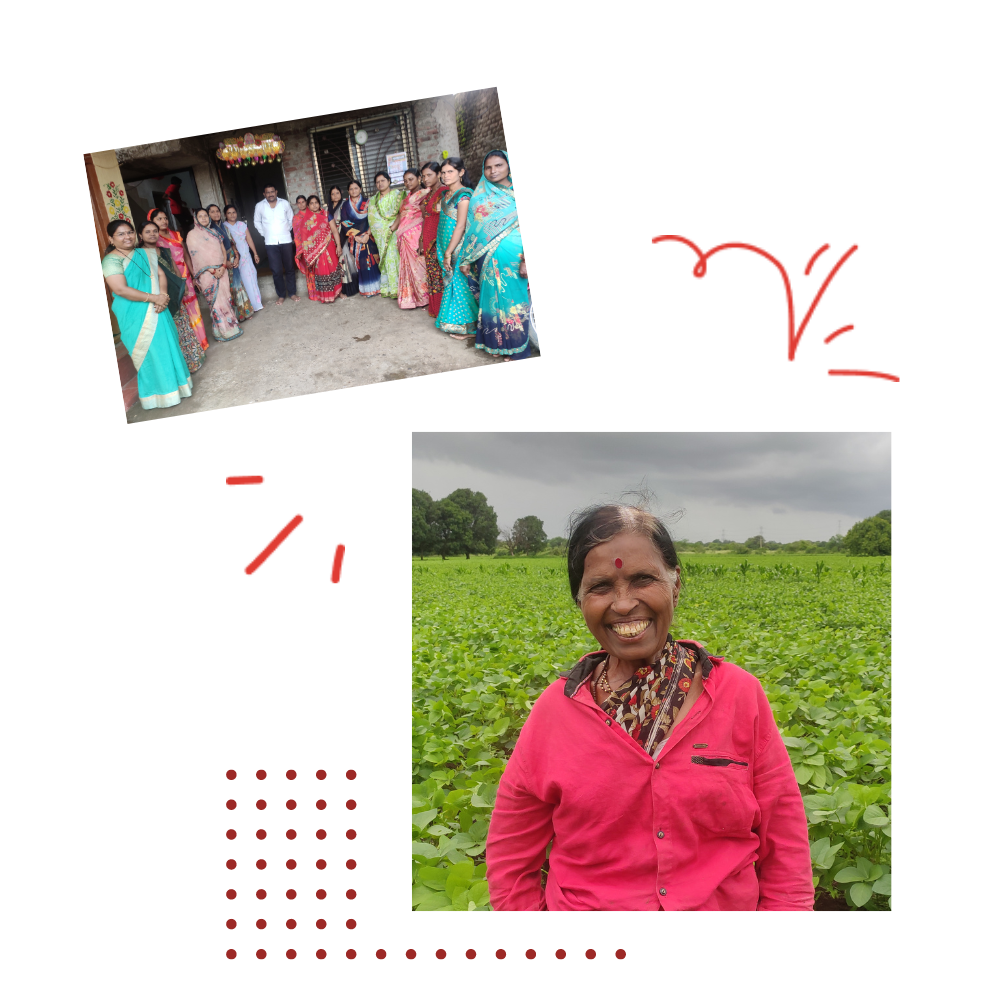
Sakhi Task Force (STF) team evolved organically during the crisis, has taken the lead while working with local government in relief distribution, COVID-19 prevention awareness, ensuring ration supply, jobs under MNREGA, local food security & livelihoods for poor families & migrants:
The COVID-19 pandemic has taught all of us many lessons and brought to the forefront inspirational stories of survival, leadership and courage at the frontline. Since the COVID-19 pandemic last year, SSP team together with the grassroots women leaders extended their leadership and team skills to work with Gram Panchayats to draw up a comprehensive COVID Recovery Plan to resolve the multiple challenges of sanitation, hygiene, food security, COVID prevention and treatment. Displaying exemplary leadership, SSP teams and the Sakhi networks used this monumental crisis to establish an identity for themselves, firstly raising the economic bar which had a spillover effect on their families as well.
COVID response projects implemented by SSP since last year have helped local communities mitigate suffering and financial turbulence by provision of medical aid, food supply, cash assistance, house repair, livelihood recovery support etc.
In 2019, Across Latur and Osmanabad districts, partnering with the district administration, Sakhi leaders reached out to 250,000 families on COVID education, ensured PDS reach to over 30,000 families and assisted over 23,050 persons to secure jobs through Mahatma Gandhi National Rural Employment Guarantee Scheme (MNREGS). SSP organised women farmer groups to sell in local markets and start enterprises. Overall 80,000 rural women across 15 districts in 4 states were supported by agile teams to navigate digital platforms, rebuild agriculture and enterprise systems to regenerate rural economies.
Encouraged by visible women’s leadership efforts, SSP was mandated by the Govt of Maharashtra and supported by UNICEF (July to Dec 2020) to work on a mass time sensitive scaled up effort to empower Sakhi Task Forces to be at the centre of creating COVID free villages with Panchayats in 2700 villages impacting over 10 lakhs people across the 3 districts in Maharashtra.
In 2021, over 700 women leaders are transforming communities to fully vaccinated status with over 1 lakh COVID 19 vaccinations till date and SSP is engaged with the Osmanabad district administration.

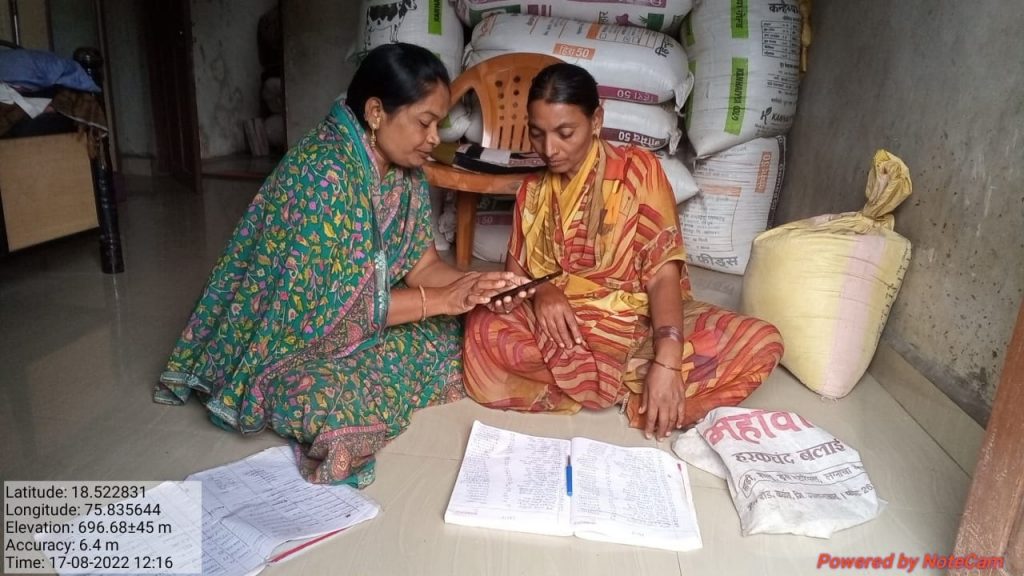
In the drought hit districts of Maharashtra, a women-led Water Sanitation and Hygiene practices initiative has made hygienic practices such as handwashing a way of life.
In spite of being in a drought-prone area, the intervention on water security, access & collection practices has resulted in enough water availability.
Today, when something as simple & basic as handwashing is one of the most important ways of preventing the spread of the deadly CoronaVirus, our villages are leading the way in showing how rural communities can ensure water availability for this life-saving step.
After addressing immediate challenges posed by COVID, SSP with UNICEF India’s support is now scaling up their prevention initiatives & learning’s from the first intervention, across 250 villages in 3 districts in Maharashtra reach out to 2500 women leaders as task force.
SSP is activating Panchayat Raj Institutions, Women’s groups & women leaders, to build up their confidence so they address challenges that women & other vulnerable groups in rural communities are likely to face, due to low levels of health & hygiene. Women are at the frontline as COVID carers & they become active members of the village level Sahayata Samiti.
Soap distribution by SSP with UNICEF and HUL Oct 2020
My Family, My Responsibility’ campaign was launched by the Zila Parishad CEOs & Collectors in Latur, Osmanabad & Solapur districts on the occasion of Gandhi Jayanti with the support of State Disaster Management Authority Maharashtra & UNICEF. 300,000 soaps for frontline workers & communities in hospitals, municipalities, communities & Gram Panchayats were provided by UNICEF Maharashtra in partnership with Hindustan Uniliver & SSP.
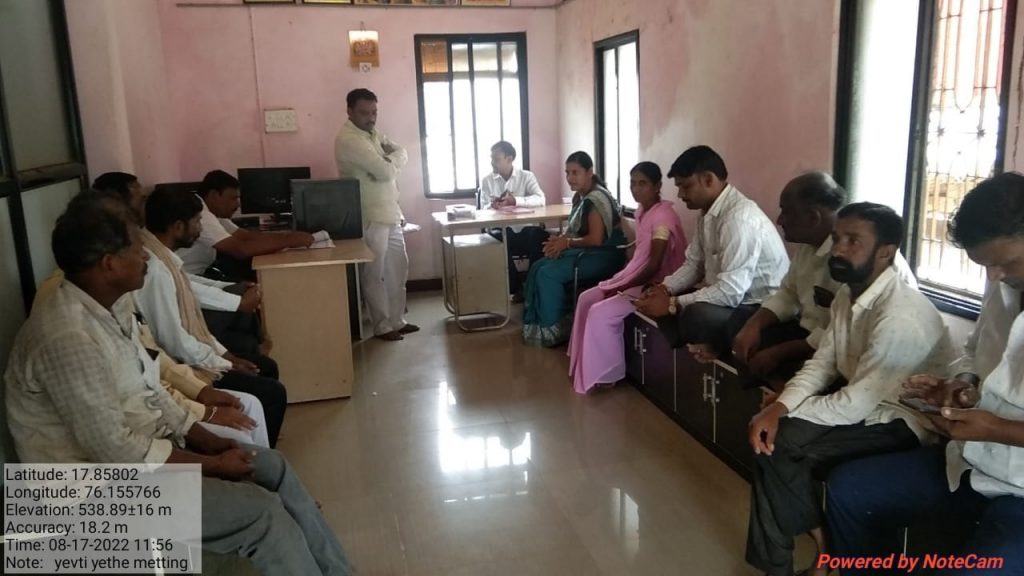
While working with local governments, SSP focused on prioritizing the needs of the vulnerable communities in the COVID situation.
The empowered Sakhi Task Force (STF) mobilized the groups to monitor the quarantine centers, access to services by patients, distribution of ration supply for the poor & migrants, helping to get jobs under MNREGS are some of the steps taken by Sakhis. Sakhi Task Force is actively involved in identifying & ensuring free rations for over 50,000 families across three states.
They monitor PDS shops to ensure access, work with Gram Panchayats helping to complete the procedures for new applications. Sakhis conducted surveys & identified the vulnerable families & lobbied with Panchayats to focus on immediate needs of the people (pregnant women, widows, mothers, elders, landless families).
Daivshala is a powerful as well as trustful women leader of Sakhi Task Force.
She is a member of Gram Panchayat, Corona Sahayata Committee from Kajla village, Osmanabad District. When she identified 11 families with differently-abled people are suffering, she took the matter in COVID19 Sahayata Committee meeting.
After convincing the members, she mobilized Rs 25,000 & distributed Rs. 2000 to each of these families for their medical care. Due to her effort, the Committee distributed sanitizers from the balance amount to 35 families & lobbied with the Block Revenue Officer to get corn, wheat & rice for their survival.
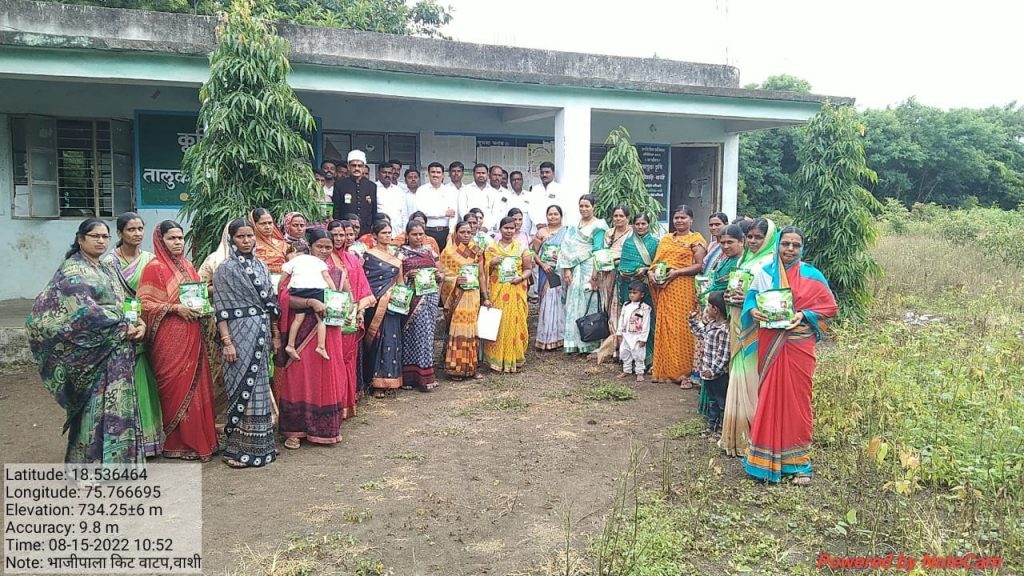
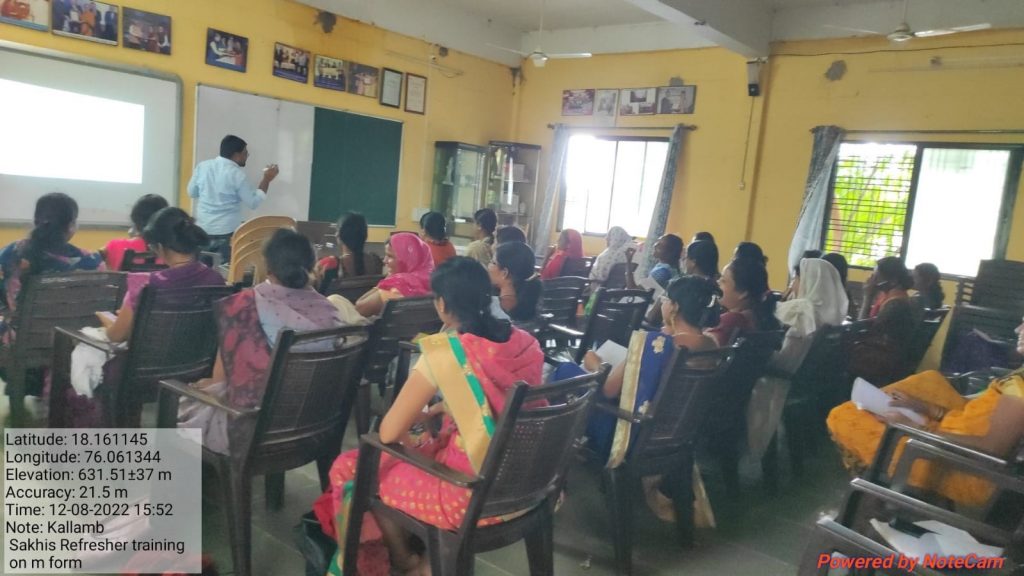
Empowered women leadership are the forefront in working with local governments to address issues of migrants & poor families on preparedness, health, water & livelihoods.
The Sakhi Task Force demonstrates that dialogues & lobbying with local governments are more effective & powerful in crisis situations. Many of the support measures taken by the local governments are the result of women leaders’ collective action in COVID situations.
Working with the Local level government to implement rapid response efforts has several advantages. Such an approach can improve the efficiency of these efforts by leveraging the meaningful connections local organisations have with the communities they serve.
It can also improve effectiveness, as local groups have a better understanding of specific needs of local communities & are more likely to be trusted & perceived as credible by those communities.
Over 150 women leaders from STF were in COVID19 Sahayata Committees formed at Panchayat level in Osmanabad district to ensure smooth flow of actions between government & community.
They Lobby with Gram Panchayats to take up village level issues such as cleanliness, institutional quarantine facilities, water availability, PDS distribution, health check-up, COVID19 testing & health services. As migrant workers return to their villages, rural India’s dependence on MNREGA wages for survival is increasing.
There is a sudden spike in people seeking work. Rekha Gadde, a women leader from Daudpur village in Osmanabad works with small & marginal farmers in mobilising & motivating sustainable farming in covid time.
She empowers her community on land rights for women & new farming methods. In COVID-19 response, Rekha was nominated to the Village Corona committee, & is working with Gram panchayat members & ASHA workers on awareness building on covid related issues. So far she reached upto 356 families under this campaign.
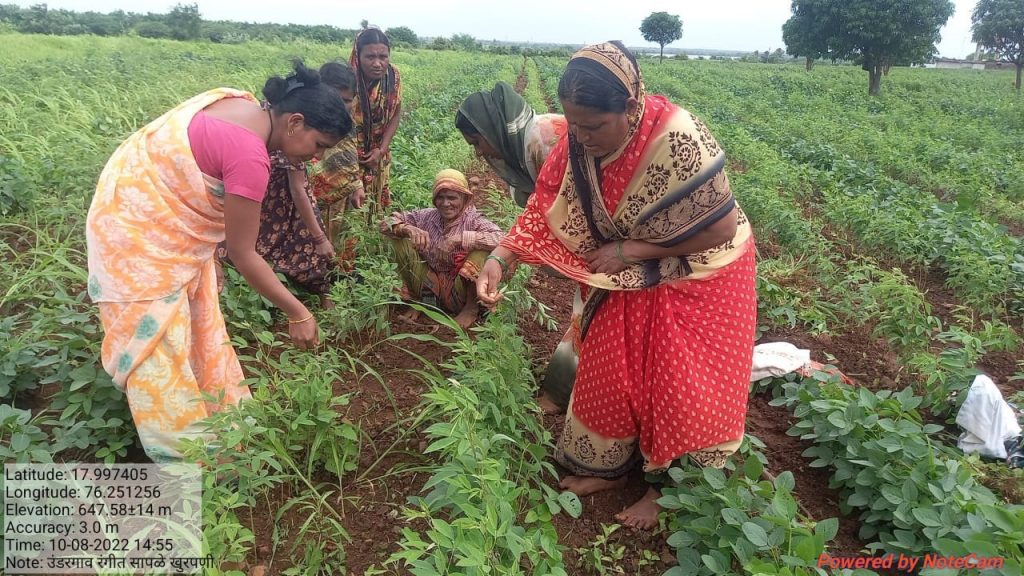
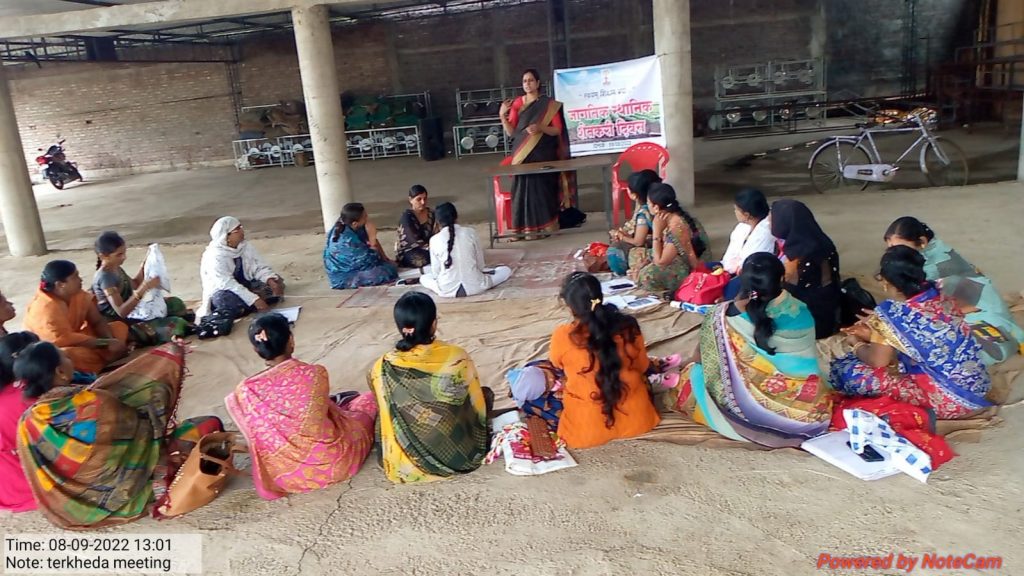
The frontline health workers play a crucial part in prevention & control of the disease. It is extremely important that we complement their efforts & help them in this battle against COVID. In each village, The Sakhi Task Force & the gram panchayat committees play key roles in mobilizing communities to improve health & hygienic practices.
SSP has conducted an assessment & prioritized the most vulnerable & poor in terms of access to services & facilities such as water, sanitation, hygiene, hand-washing & health services.
The Sakhi Task Force in partnership with the local governments ensured safe water supply, hand washing, social distancing, use of sanitizers & hygiene practices.
A little help goes a long way. Komal Pawar from Tirth Kurdh, Osmanabad was worried about possible malnutrition in her village.
Diets of rural women are often too poor to meet their nutritional needs. Our Arogya Sakhis are leading the war against malnutrition. Height & weight of infants & children below 5 are recorded on a fortnightly basis.
Even though the anganwadi centres are closed, door to door checkups are on. The aim is to prevent malnutrition before it happens. Kitchen gardens are helping many families receive proper nutrition. Kitchen gardens are practical, cost-effective & a sustainable solution for our food needs, says Komal.
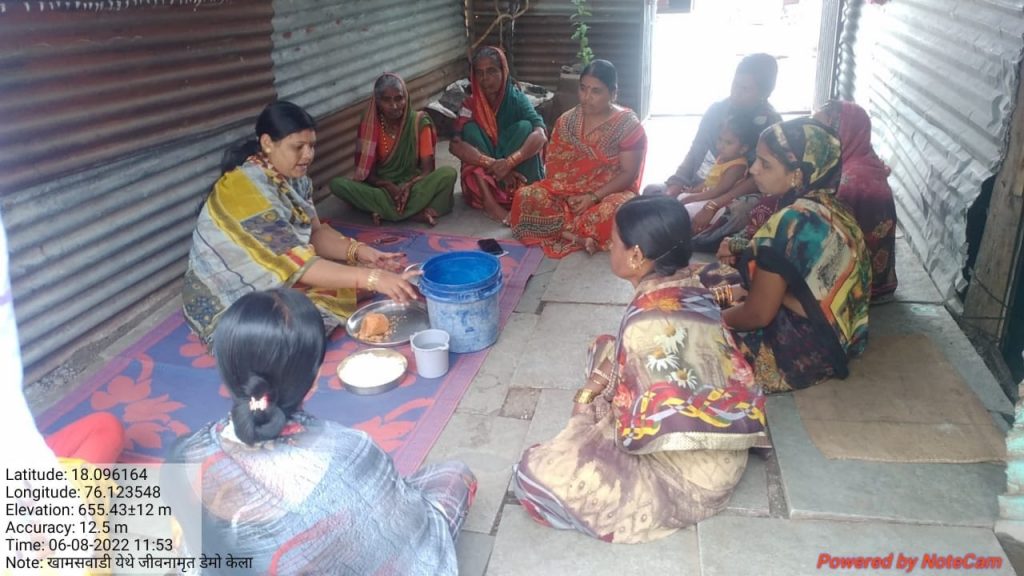
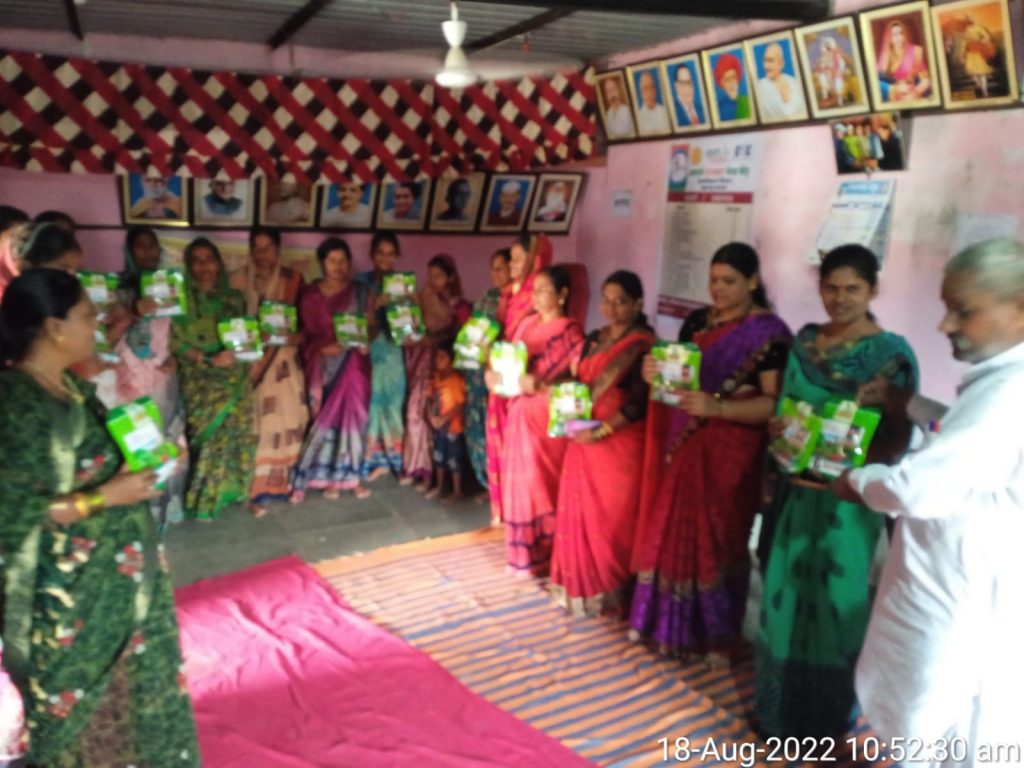
COVID19 has disrupted supply chains & livelihoods, on one hand, & on the other –allowed organised groups to create new pathways to regenerate rural economies.
Women leaders have embarked on preparing community level blueprints for job creation that view the return of migrants as a sign of hope – ‘They bring back skills from urban markets including digital skills’ says Manisha. Women farmers have stepped up their presence in local markets & businesses in essentials.
They have formed vegetable marketing groups & dairy collectives resulting in a big shift of women from doing farming to becoming job creators in agri-allied enterprises.
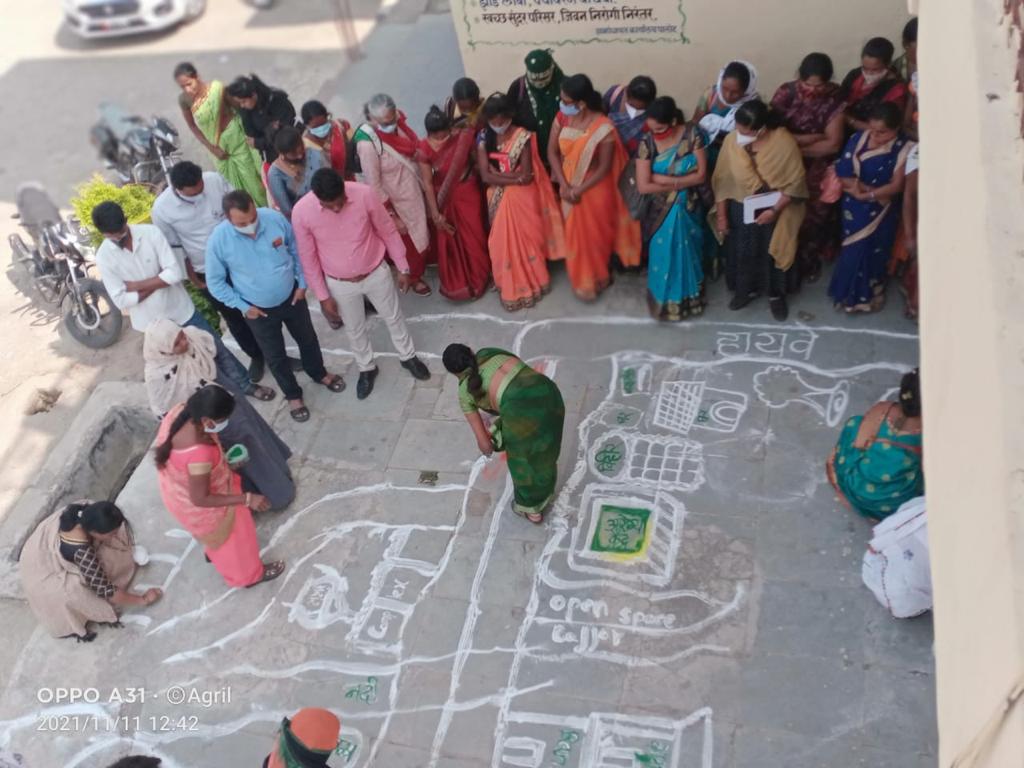
“We never imagined using our skills learned from training attended months ago.
Now lamp wick making gives us additional income & recognition in this difficult time”, says Vineetha. Sakhi leader from Kottathara, Wayanad.
The lockdown has persuaded the women group to think positively & decided to make the lamp wicks & distribute them to nearby shops, temples, churches & houses. The group had been doing stitching work, decided to start lamp wick making, considering the shortage of tailoring jobs during lockdown.
The group received 2 kg Yarn from SSP during the training in February 2020. They made a profit of Rs 500 as an additional income for their families.
`Our message is that being organized, having a strong grassroots network & our robust partnerships with the local government, allowed us to deal with the COVID-19 crisis & help our communities & the migrant workers.’ Godavari Dange.
Godavari, Secretary of the Sakhi Federation, Maharashtra, leader from Swayam Shikshan Prayog India, & of Huairou Commission shared the experiences & learning of how her federation’s women leaders addressed the COVID-19 crisis in the session on “CBA14 setting the stage: from crisis to climate action” jointly organised with International Institute for Environment & Development (IIED) on 21st July, 2020. She emphasized the role played by organized grassroots women’s networks to address the issue of migrant workers & vulnerable community members, in partnership with the local government.Source: Huairou Commission & CBA14.
After addressing immediate challenges posed by COVID, SSP with UNICEF India’s support is now scaling up their prevention initiatives & learning’s from the first intervention, across 250 villages in 3 districts in Maharashtra reach out to 2500 women leaders as task force.
SSP is activating Panchayat Raj Institutions, Women’s groups & women leaders, to build up their confidence so they address challenges that women & other vulnerable groups in rural communities are likely to face, due to low levels of health & hygiene. Women are at the frontline as COVID carers & they become active members of the village level Sahayata Samiti.
My Family, My Responsibility’ campaign was launched by the Zila Parishad CEOs & Collectors in Latur, Osmanabad & Solapur districts on the occasion of Gandhi Jayanti with the support of State Disaster Management Authority Maharashtra & UNICEF. 300,000 soaps for frontline workers & communities in hospitals, municipalities, communities & Gram Panchayats were provided by UNICEF Maharashtra in partnership with Hindustan Uniliver & SSP.
#FarmFromHome The one-acre climate resilient farming model is even more important today. It is helping the small farmers not stay hungry. Families can continue to eat the healthy, the nutritious meals made from the vegetables that are grown in their own home-gardens or the small farms. They do not need to step out of their homes to purchase the basic food necessary for the survival.
While working with local governments, SSP focused on prioritizing the needs of the vulnerable communities in the COVID situation.
The empowered Sakhi Task Force (STF) mobilized the groups to monitor the quarantine centers, access to services by patients, distribution of ration supply for the poor & migrants, helping to get jobs under MNREGS are some of the steps taken by Sakhis.
Sakhi Task Force is actively involved in identifying & ensuring free rations for over 50,000 families across three states. They monitor PDS shops to ensure access, work with Gram Panchayats helping to complete the procedures for new applications.
Sakhis conducted surveys & identified the vulnerable families & lobbied with Panchayats to focus on immediate needs of the people (pregnant women, widows, mothers, elders, landless families).
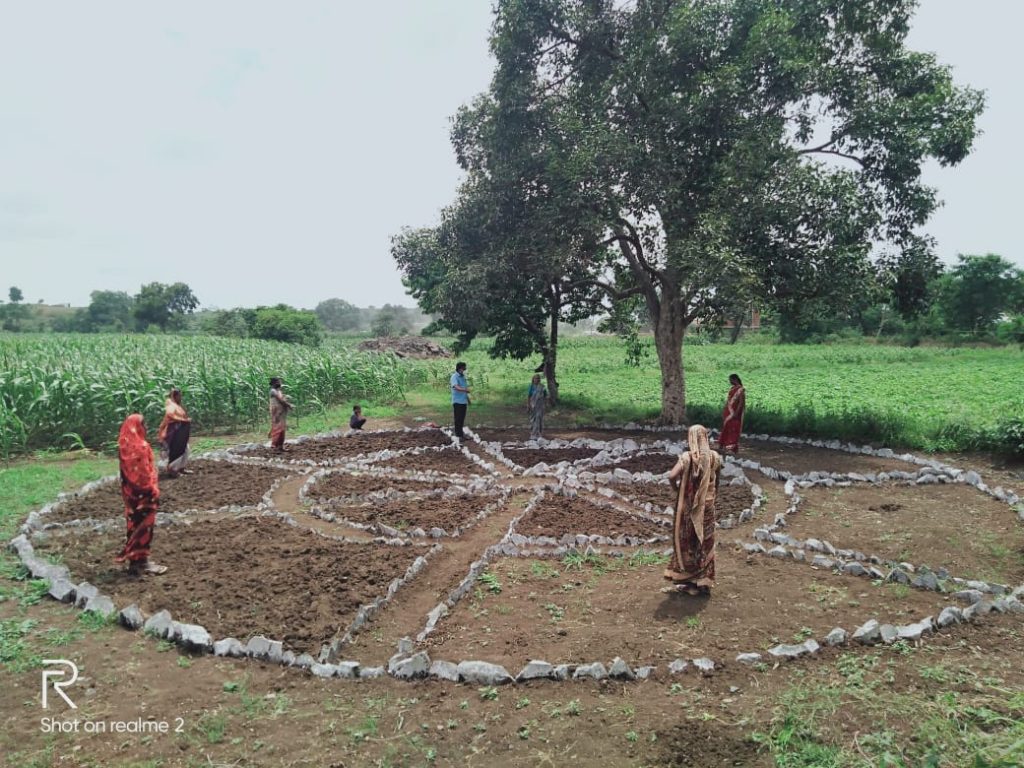
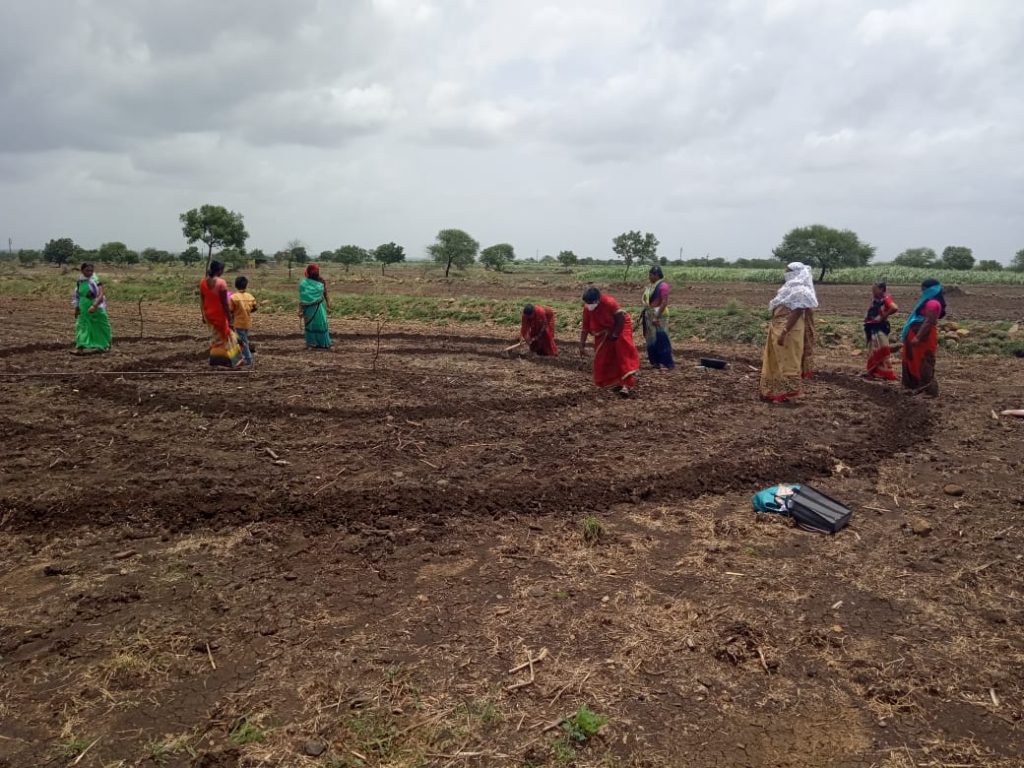
Daivshala is a powerful as well as trustful women leader of Sakhi Task Force. She is a member of Gram Panchayat, Corona Sahayata Committee from Kajla village, Osmanabad District.
When she identified 11 families with differently-abled people are suffering, she took the matter in COVID19 Sahayata Committee meeting. After convincing the members, she mobilized Rs 25,000 & distributed Rs. 2000 to each of these families for their medical care.
Due to her effort, the Committee distributed sanitizers from the balance amount to 35 families & lobbied with the Block Revenue Officer to get corn, wheat & rice for their survival.
Empowered women leadership are the forefront in working with local governments to address issues of migrants & poor families on preparedness, health, water & livelihoods.
The Sakhi Task Force demonstrates that dialogues & lobbying with local governments are more effective & powerful in crisis situations.
Many of the support measures taken by the local governments are the result of women leaders’ collective action in COVID situations. Working with the Local level government to implement rapid response efforts has several advantages. Such an approach can improve the efficiency of these efforts by leveraging the meaningful connections local organisations have with the communities they serve.
It can also improve effectiveness, as local groups have a better understanding of specific needs of local communities & are more likely to be trusted & perceived as credible by those communities.
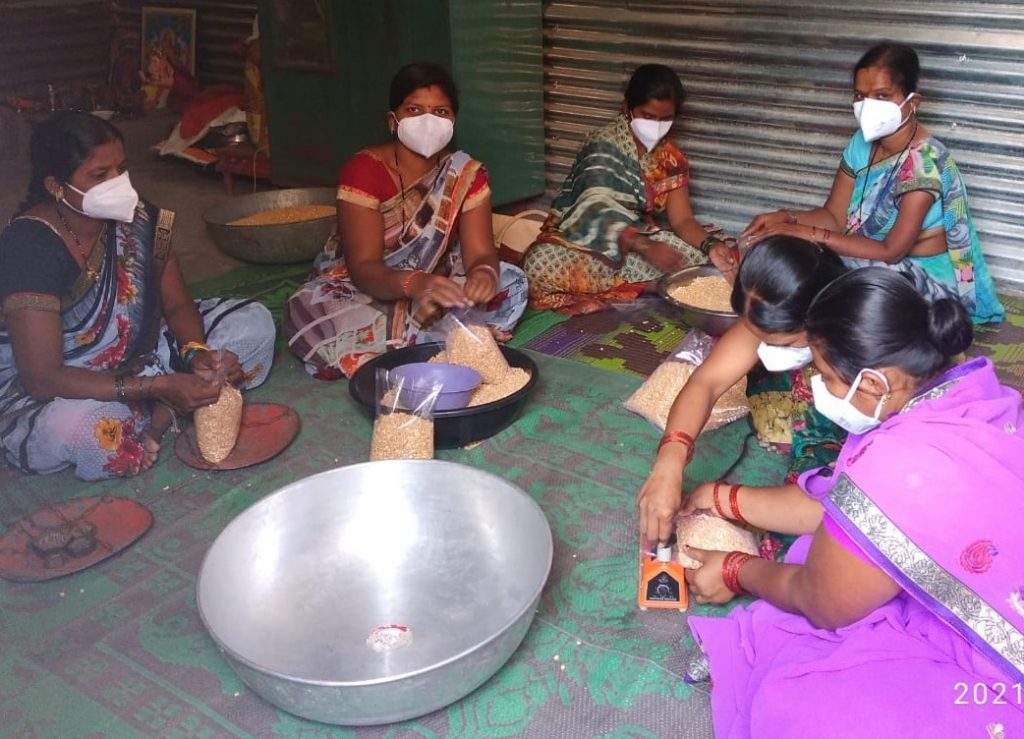
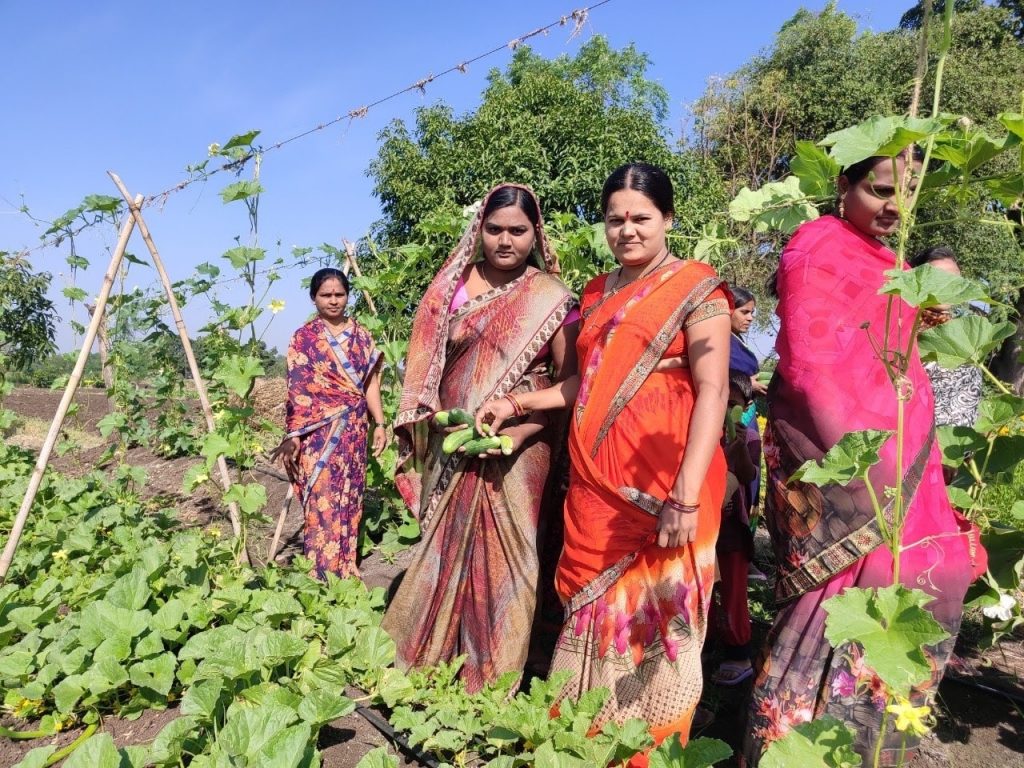
Over 150 women leaders from STF were in COVID19 Sahayata Committees formed at Panchayat level in Osmanabad district to ensure smooth flow of actions between government & community.
They Lobby with Gram Panchayats to take up village level issues such as cleanliness, institutional quarantine facilities, water availability, PDS distribution, health check-up, COVID19 testing & health services.
As migrant workers return to their villages, rural India’s dependence on MNREGA wages for survival is increasing. There is a sudden spike in people seeking work. Rekha Gadde, a women leader from Daudpur village in Osmanabad works with small & marginal farmers in mobilising & motivating sustainable farming in covid time.
She empowers her community on land rights for women & new farming methods. In COVID-19 response, Rekha was nominated to the Village Corona committee, & is working with Gram panchayat members & ASHA workers on awareness building on covid related issues. So far she reached upto 356 families under this campaign.
The frontline health workers play a crucial part in prevention & control of the disease.
It is extremely important that we complement their efforts & help them in this battle against COVID. In each village, The Sakhi Task Force & the gram panchayat committees play key roles in mobilizing communities to improve health & hygienic practices.
SSP has conducted an assessment & prioritized the most vulnerable & poor in terms of access to services & facilities such as water, sanitation, hygiene, hand-washing & health services. The Sakhi Task Force in partnership with the local governments ensured safe water supply, hand washing, social distancing, use of sanitizers & hygiene practices.
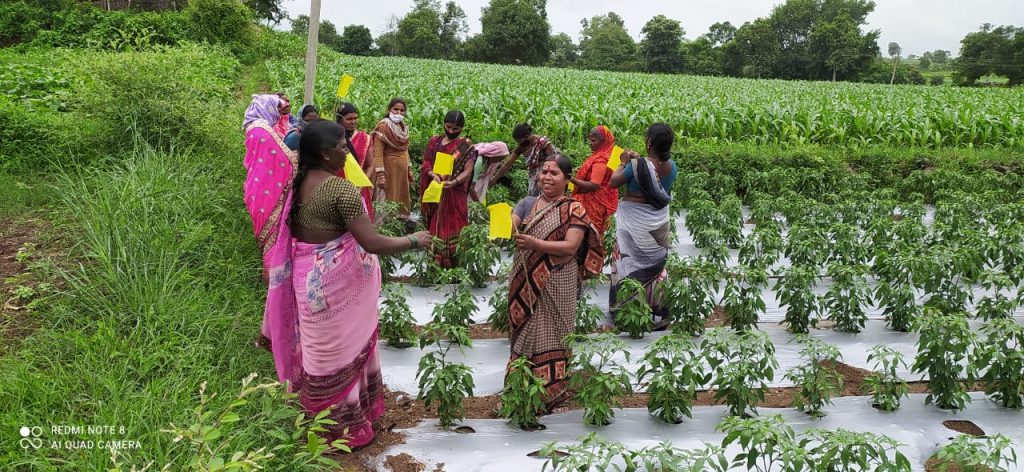
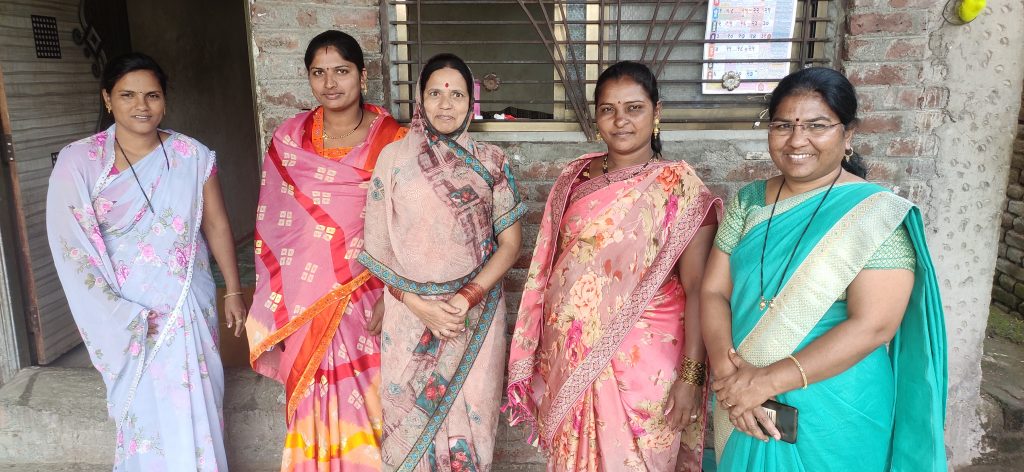
A little help goes a long way. Komal Pawar from Tirth Kurdh, Osmanabad was worried about possible malnutrition in her village.
Diets of rural women are often too poor to meet their nutritional needs. Our Arogya Sakhis are leading the war against malnutrition. Height & weight of infants & children below 5 are recorded on a fortnightly basis.
Even though the anganwadi centres are closed, door to door checkups are on. The aim is to prevent malnutrition before it happens. Kitchen gardens are helping many families receive proper nutrition. Kitchen gardens are practical, cost-effective & a sustainable solution for our food needs, says Komal.
COVID19 has disrupted supply chains & livelihoods, on one hand, & on the other –allowed organised groups to create new pathways to regenerate rural economies.
Women leaders have embarked on preparing community level blueprints for job creation that view the return of migrants as a sign of hope – ‘They bring back skills from urban markets including digital skills’ says Manisha.
Women farmers have stepped up their presence in local markets & businesses in essentials. They have formed vegetable marketing groups & dairy collectives resulting in a big shift of women from doing farming to becoming job creators in agri-allied enterprises.
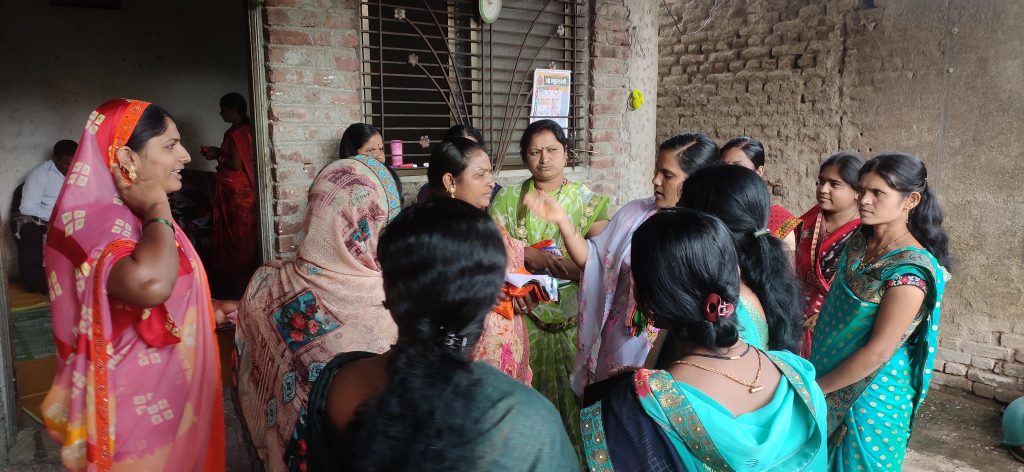
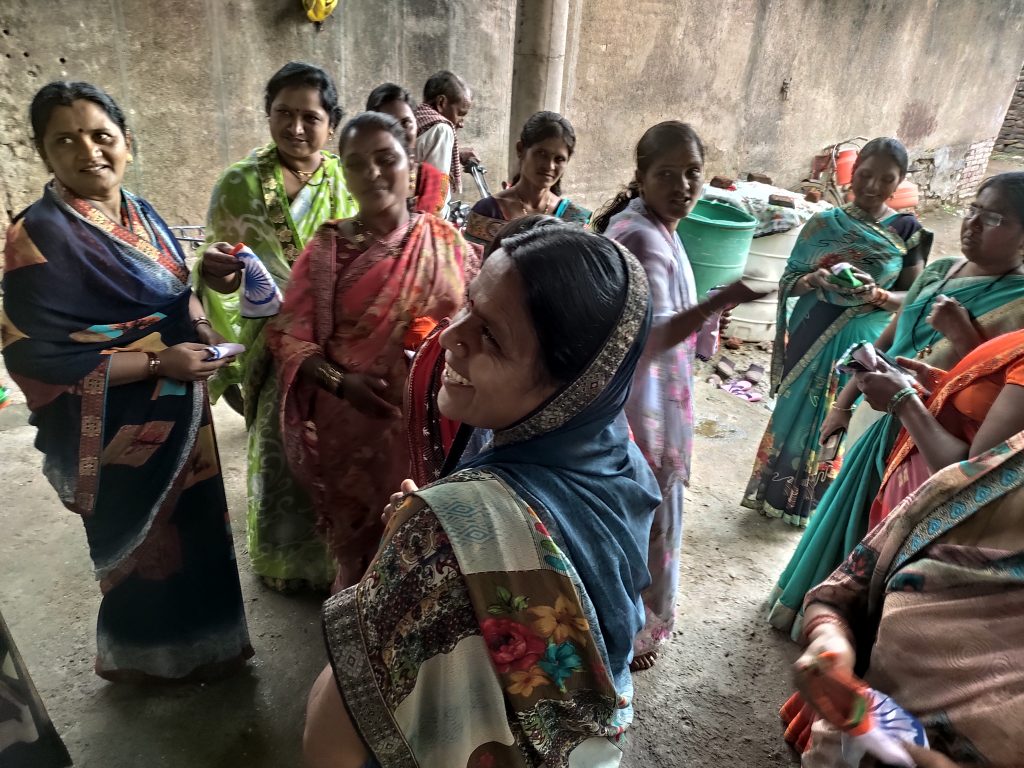
“We never imagined using our skills learned from training attended months ago.
Now lamp wick making gives us additional income & recognition in this difficult time”, says Vineetha. Sakhi leader from Kottathara, Wayanad. The lockdown has persuaded the women group to think positively & decided to make the lamp wicks & distribute them to nearby shops, temples, churches & houses. The group had been doing stitching work, decided to start lamp wick making, considering the shortage of tailoring jobs during lockdown.
The group received 2 kg Yarn from SSP during the training in February 2020. They made a profit of Rs 500 as an additional income for their families.
`Our message is that being organized, having a strong grassroots network & our robust partnerships with the local government, allowed us to deal with the COVID-19 crisis & help our c`Our message is that being organized, having a strong grassroots network & our robust partnerships with the local government, allowed us to deal with the COVID-19 crisis & help our communities & the migrant workers.’ Godavari Dange.
Godavari, Secretary of the Sakhi Federation, Maharashtra, leader from Swayam Shikshan Prayog India, & of Huairou Commission shared the experiences & learning of how her federation’s women leaders addressed the COVID-19 crisis in the session on “CBA14 setting the stage: from crisis to climate action” jointly organised with International Institute for Environment & Development (IIED) on 21st July, 2020. She emphasized the role played by organized grassroots women’s networks to address the issue of migrant workers & vulnerable community members, in partnership with the local government.Source: Huairou Commission & CBA14.ommunities & the migrant workers.’ Godavari Dange.
Godavari, Secretary of the Sakhi Federation, Maharashtra, leader from Swayam Shikshan Prayog India, & of Huairou Commission shared the experiences & learning of how her federation’s women leaders addressed the COVID-19 crisis in the session on “CBA14 setting the stage: from crisis to climate action” jointly organised with International Institute for Environment & Development (IIED) on 21st July, 2020. She emphasized the role played by organized grassroots women’s networks to address the issue of migrant workers & vulnerable community members, in partnership with the local government.Source: Huairou Commission & CBA14.
After addressing immediate challenges posed by COVID, SSP with UNICEF India’s support is now scaling up their prevention initiatives & learning’s from the first intervention, across 250 villages in 3 districts in Maharashtra reach out to 2500 women leaders as task force.
SSP is activating Panchayat Raj Institutions, Women’s groups & women leaders, to build up their confidence so they address challenges that women & other vulnerable groups in rural communities are likely to face, due to low levels of health & hygiene. Women are at the frontline as COVID carers & they become active members of the village level Sahayata Samiti.
My Family, My Responsibility’ campaign was launched by the Zila Parishad CEOs & Collectors in Latur, Osmanabad & Solapur districts on the occasion of Gandhi Jayanti with the support of State Disaster Management Authority Maharashtra & UNICEF. 300,000 soaps for frontline workers & communities in hospitals, municipalities, communities & Gram Panchayats were provided by UNICEF Maharashtra in partnership with Hindustan Uniliver & SSP.
#FarmFromHome The one-acre climate resilient farming model is even more important today. It is helping the small farmers not stay hungry. Families can continue to eat the healthy, the nutritious meals made from the vegetables that are grown in their own home-gardens or the small farms. They do not need to step out of their homes to purchase the basic food necessary for the survival.
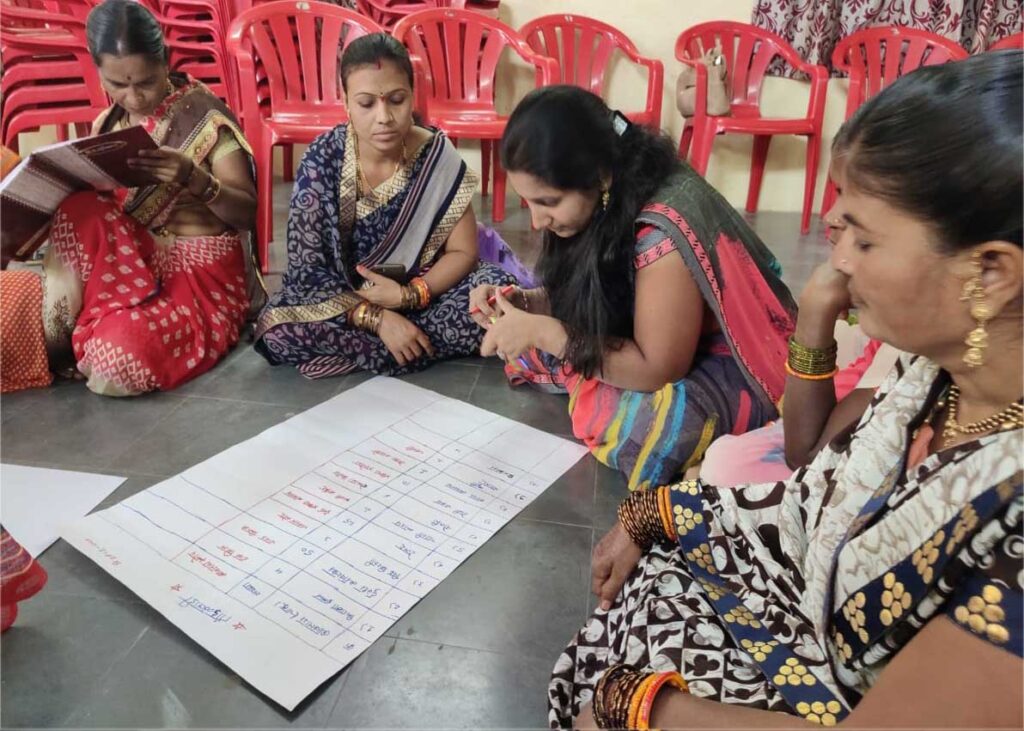
Women leaders formed the Sakhi Task Force & mobilised community contribution as food relief to vulnerable & poor families in rural villages. They are working with more than 500 communities & are now a part of the solution rather than a problem & looked at migrants as assets for the villages. Agriculture & agri-allied services are ensuring income for the poor during pandemic. There are new opportunities in food essentials like dairy, kitchen gardening, food grains & vegetables & women created local markets when there were none before.
Women are now leading micro-enterprises by investing money & taking loans from SHG groups & creating value chains of vegetables groups, milk collection, seed banks, etc without losing income.
Aggregation of products, services and labour/skills is a powerful way for women groups to link to companies who want to develop alternate markets and business models.
Ensure food security through food from farm & home gardens
Groups & networks are the only measure of disaster prevention that poor women have, they help to transmit and transfer right information & leave no one behind.
As women entrepreneurs grow, they build business to business (B2B) connections, embrace community leadership to ensure food, health, livelihoods, protect water & other resources, & give back through their networks to the most vulnerable.
In addition, women have started getting digitally literate through phone-based training including digital payments.
Facilitate new local markets, alternate business models, & shorten value chains by connecting farmers directly to consume.
